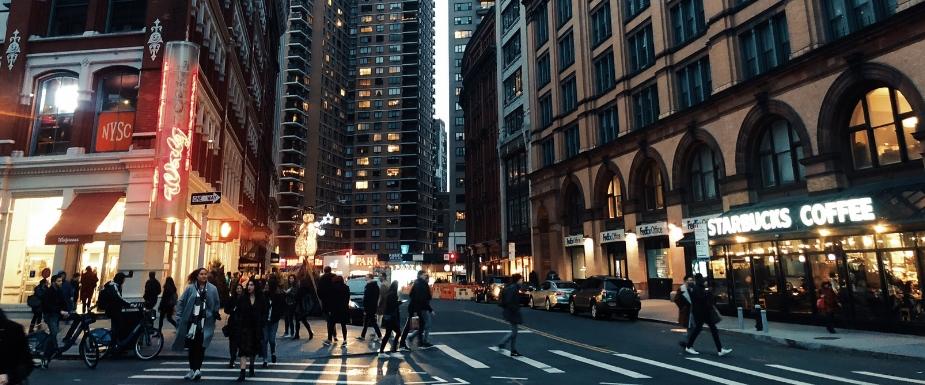On Seeking the Shalom of Your Neighborhood

Seek the welfare of the city where I have sent you into exile, and pray to the Lord on its behalf, for in its welfare you will find your welfare.
Jeremiah 29:7
This word was spoken by God to the people of Israel while they were in exile in Babylon. It was a command for them to orient their lives toward seeking the peace of God wherever they were—even in exile. Why? Because, as Jesus would later articulate in the Sermon on the Mount, part of what it means to be children of God is to be engaged in the work of making peace in a hostile world.
What is often translated in this verse as the word welfare, peace, or prosperity is the Hebrew word shalom. With our Western mindsets, we often think about peace as merely the absence of conflict, but shalom is much more than that. Shalom is about wholeness. It’s an intensely relational word. It has to do with all parties in a given relationship being able to flourish and thrive.
The concept of shalom teaches us that we were made to flourish in our relationships with God, with one another, with our own selves, with the systems and structures that govern us, and with the whole of the created order. Lisa Sharon Harper, author of The Very Good Gospel, speaks of shalom in this way:
Shalom is what God declared. Shalom is what the Kingdom of God looks like. Shalom is when all people have enough. It’s when families are healed. It’s when churches, schools, and public policies protect human dignity. Shalom is when the image of God is recognized, protected and cultivated in every single human. Shalom is our calling as followers of Jesus’ gospel. It is the vision God set forth in the Garden and the restoration God desires for every broken relationship. Shalom is what our souls long for. Shalom is the “very good” in the gospel.
The cross is what makes shalom possible, because it is through the death of Jesus that we are able to be reconciled to God, and it is by walking the way of the cross that we can be reconciled to one another. Resurrection is God’s declaration that the project of shalom—of making all things new—is underway.
To be people who are passionate about the gospel is to be people who are committed to cultivating shalom wherever we are. It is this vision that animates my own church, Hope East Village. This is why our vision is to bear witness to the Kingdom of God by seeking the flourishing [or shalom] of the East Village, the Lower East Side, and all of New York City.
Seeking the shalom of our neighborhood involves understanding its history and the people who call it home. The East Village has a deeply rich history—one characterized by art, a passionate pursuit of justice and equity, and beautifully complex diversity. Like a number of neighborhoods, gentrification has hit the East Village particularly hard. When you look at the neighborhood now, you are immediately struck by the stark disparities. On one end of the neighborhood is Astor Place, where Facebook has its offices, and at the other end, down by the East River in Alphabet City, are the Jacob Riis Housing Projects.
Many of the lower-income residents are being priced out of the neighborhood as luxury apartments are being built to make space for the young professionals moving here. The fight for the neighborhood has always been a real thing. There are very real hostilities in our neighborhood. The East Village is in desperate need of God’s shalom to break through in tangible ways. We are in need of the good news of the Kingdom of God.
And so we ask questions like: What does it mean to be the church at the intersections of all of this? What does it look like to cultivate God’s new humanity, where people from both ends of the neighborhood share like together? What might it take for a gospel movement to spring forth in the East Village that breaks down dividing walls of hostility? How can we elevate the voices and stories of those in the neighborhood who are being marginalized and advocate for restorative justice alongside them?
We know we are not bringing Jesus here. Jesus has been here for a long time. He’s been present among the poor and the unheard. He’s been present in the beauty that has been cultivated here. He’s been present in the cries for justice that have risen from this neighborhood for decades. Our desire is to join Jesus in what he’s already up to in our neighborhood.
As we seek the shalom of the East Village, our prayer is ultimately that God’s Kingdom would come and God’s will would be done in the East Village as it is in heaven.
* * *
Drew Jackson is the pastor of Hope East Village.
